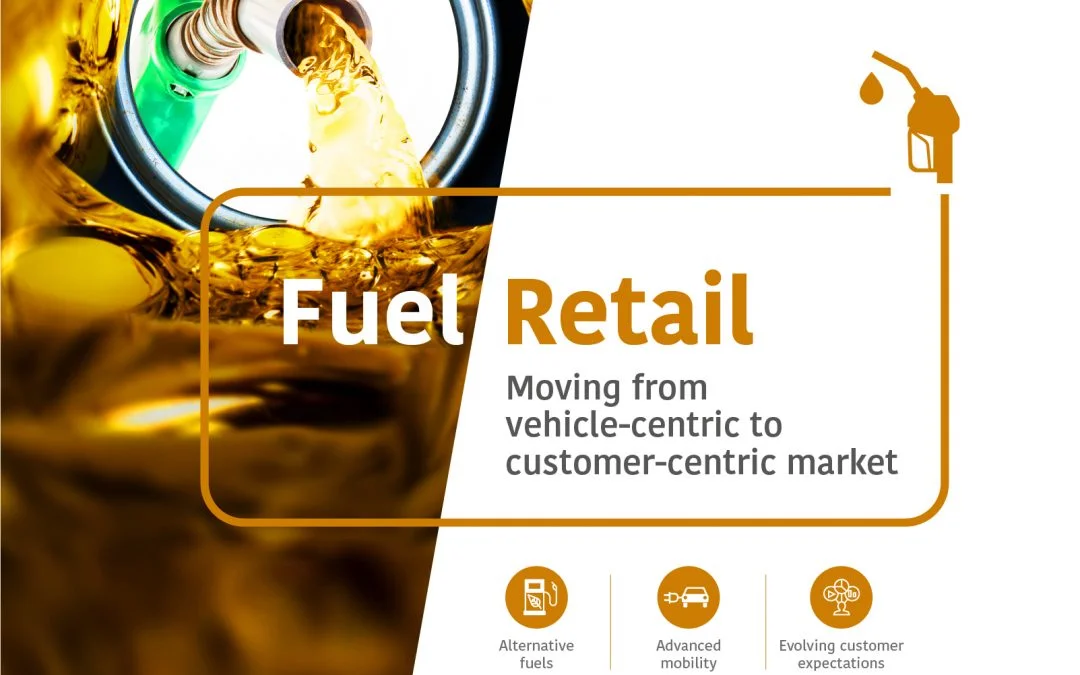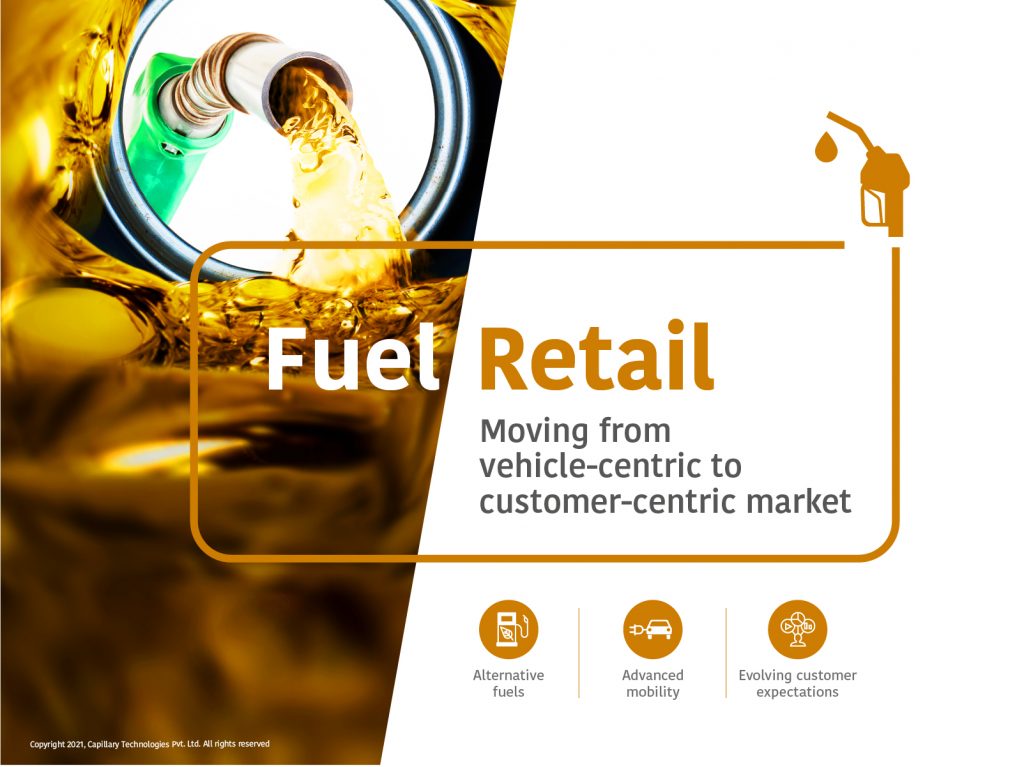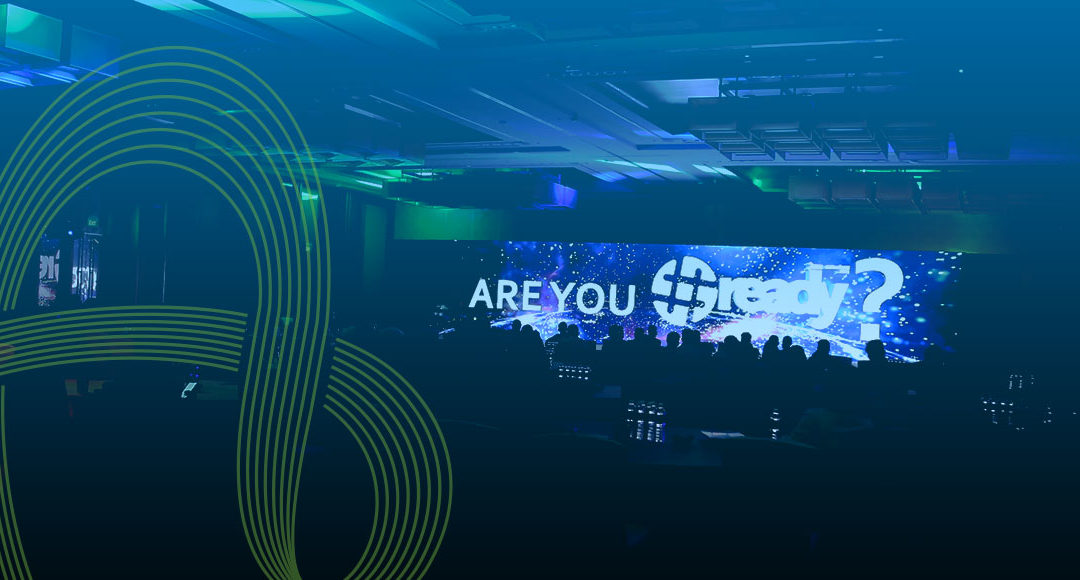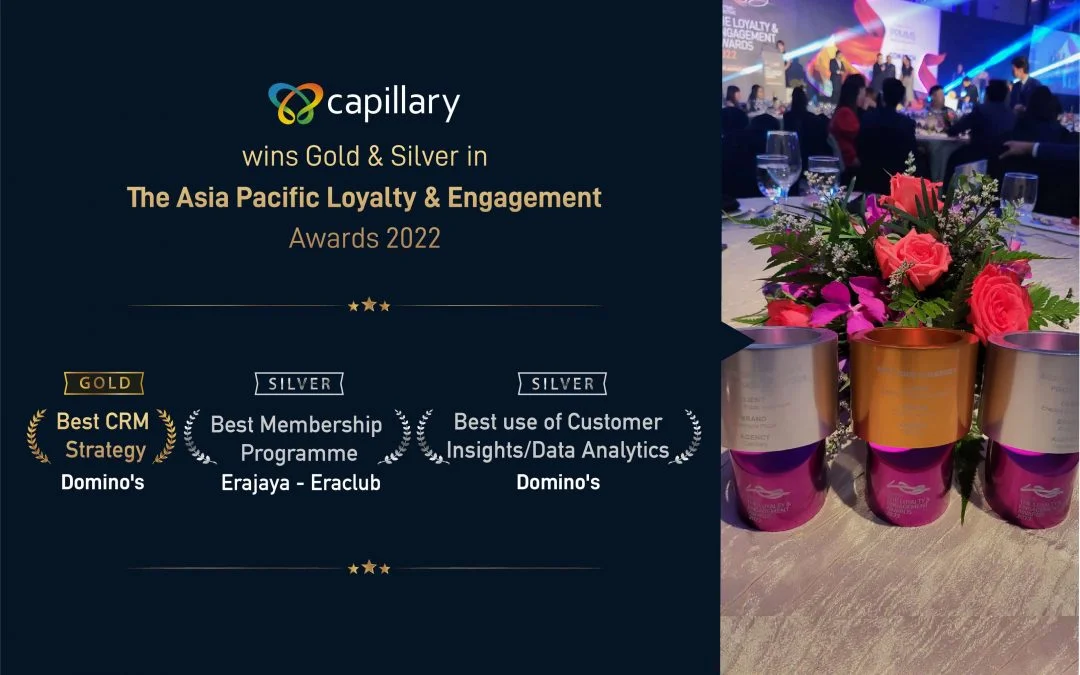- Design industry shaping loyalty programs
- Integrate easily and go live quicker
- Deliver hyper-personalized consumer experiences
Blue Rewards from Al Futtaim Group Shares Loyalty Success Stories and Evolution. Watch Podcast >
Capillary Announces 2nd Annual Captivate 2025 Summit: Transforming Loyalty Management with New AI Tech Read more >

The challenging dynamics created by COVID-19, has destabilized the demand in oil and gas industry, along with the supply shock due to Saudi Arabia and Russia’s disagreement on production costs which has initiated a price war, further reducing the prices. This could negatively impact countries such as Iran and Venezuela, who are economically and financially dependent on oil production and export. India’s fuel consumption declined by 9.1% in the FY 2021 because of plummeted demand of around 40-60%.
Other factors like crude availability, high transportation costs, price fluctuations, government norms, etc. are beyond control, and does affect the supply chain and demand. 197 countries have signed the Paris Agreement, to curb the Greenhouse Gas Emissions by 33-35% by the year 2030. And to add to that, the current fuel retail market is largely moving from a vehicle-centric market to a customer-centric one. This radical shift is disrupted by 3 key drivers:

The core offering of the oil and gas industry is an undifferentiated product, with similar price range, thus making it a convenience-based commodity. Customers expect a differentiated and personalized buying experience, hence fuel retailers need to invest in creating a value proposition which will know the customer, create affinity, and thus embark on a long term relationship. Businesses are implementing a customer insights platform to identify and create interlinkages. This can not only aid in consumer retention but also acquire new customers. The fuel stations in the future, would be set up to drive consumer relationships and aim to enhance fuel retail experience. The evolution of Gas stations is poised at a transition that requires consumer centricity driven by analytics and multi-brand and retailing competencies to enhance their business models. Gaurav Mehta, VP and Global Head – Alliances and Analyst Relations, Capillary Technologies adds, “Market dynamics expect fuel companies to transform themselves to energy institutions and leverage the available opportunity. The desire to know and improve consumer awareness is going to keep the fuel companies busy for the next 5 years.”
The effect of fuel loyalty programs appeared to have been evaporating as a result of the inevitable consumer shift following in the current pandemic scenario. Lesser movement of vehicles has further decelerated the fuel consumption patterns across the globe. Fuel retailers thus need to take a step back to reshape their customer strategy and attract loyalty, especially in these trying times. Emergence of new business models to induce loyalty is quite evident from following trends.
Fuel retailers have a huge potential to not only offer beyond fuel products but also create a remarkable shopping experience at their forecourts. Sushant Rabra, partner with a leading consulting firm shares his thoughts on the same, “For the fuel retailers, consumer experience is an upcoming competitive milestone. Fuel being an undifferentiated product, retailers need to come up with a strategy and opt digitalization techniques to stand out in the crowd by catering to upgraded forecourt experiences and benefits for customers.”
Since fuel is also a geo-based commodity, chances of customers returning to the same fuel brand are sometimes frugal. This is where hyper-localization has the ability to tilt the scales. With a comprehensive fuel retail loyalty program, a customer is more likely to return owing to numerous rewards offered by the brand. As brands engage and participate with their customers constantly, it builds up a credible data source encompassing behavioral patterns over a period of time and foresee customer trends. A data-driven loyalty program is the plugin that fuel retailers would need to enhance their overall customer engagement.
At Capillary Technologies, we closely reviewed the purchase behavior of a group of fuel shoppers to understand their core buying patterns over a period of time. As our experts analyzed and distilled the findings, 3 consumer traits were called out in the customer decision buying process: (a) Rewards that enable agility (b) Rewards that allow convenience (c) Rewards that offer instant gratification
Keeping these traits at the forefront, an agile framework for fuel retail loyalty was created that enables fuel shoppers to avail the next best offer on their next transaction by auto-applying coupon codes. This agile framework enable customer convenience by giving them rewards in real-time. The need to introduce this framework stems from the fact that customers have lesser time to shop, a reason why, they would prefer an automated system which can pull the next best offer based on their recent transaction as well as their past purchase behavior.
Keeping these traits at the forefront, an agile framework for fuel retail loyalty was created that enables fuel shoppers to avail the next best offer on their next transaction by auto-applying coupon codes. This agile framework enable customer convenience by giving them rewards in real-time. The need to introduce this framework stems from the fact that customers have lesser time to shop, a reason why, they would prefer an automated system which can pull the next best offer based on their recent transaction as well as their past purchase behavior.
As buyer requests and patterns change, fuel retailers need to essentially change the way they perceive customer loyalty. With forecourt experiences building up from strength to strength and data-driven personalization enhancing fuel shopping experience, fuel brands must look outside the basic earn and burn model from their exiting loyalty programs. Fuel retail loyalty programs no longer restrict to rewards, but they are a potential source to shape customer behavior and gain brand advocacy. It is increasingly becoming pertinent to drive consumer retention, and drive revenue for organizations over the world. While the 2020 pandemic posed many challenges for the fuel, oil and gas companies; it also laid a path for the industry to seek newer opportunities and create a frictionless world for loyalty programs.

December 24, 2018 | 4 Min Read
Exponential advances in technology, the proliferation of dig

February 11, 2014 | 4 Min Read
At Capillary, we strongly believe that we’re known by the

August 24, 2022 | 4 Min Read
Capillary was adjudicated the winner for its work at the Loy